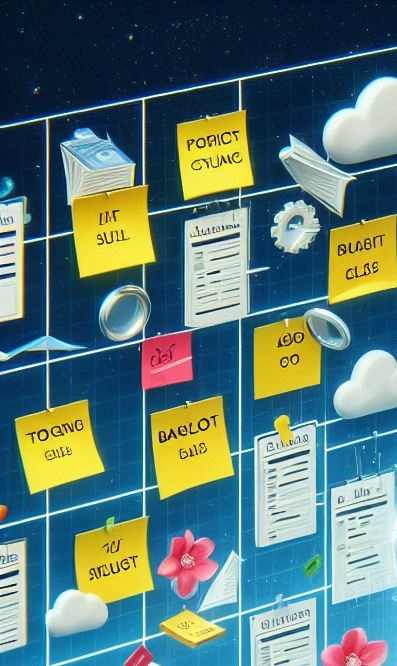Are you looking for a virtual team activity to teach people about agile project management?
Objective: To simulate an agile project management environment where participants experience the principles of collaboration, iteration, and adaptability.
Materials Needed:
- Virtual collaboration platform (e.g., Zoom, Microsoft Teams, Google Meet)
- Online whiteboard tool (e.g., Miro, MURAL)
- Timer
- Scrum board template (if using an online whiteboard)
Instructions:
- Setup:
- Schedule a virtual meeting for all participants.
- Prepare an online whiteboard space with a Scrum board template or create columns labeled “To Do,” “In Progress,” and “Done” to represent the workflow.
- Introduction (5 minutes):
- Welcome participants and introduce the objectives of the activity: to experience agile project management principles in action.
- Provide a brief overview of agile methodology, including the concepts of iterations, sprints, and self-organizing teams.
- Team Formation (3 minutes):
- Divide participants into virtual teams of 4-6 members each.
- Project Kickoff (5 minutes):
- Present the hypothetical project scenario to the teams. For example, developing a new mobile app or organizing a virtual event.
- Clarify the project goals, requirements, and constraints.
- Sprint Planning (7 minutes):
- Instruct each team to conduct a sprint planning session to identify tasks for the upcoming sprint.
- Encourage teams to prioritize tasks and estimate their effort using story points or similar units.
- Sprint Execution (10 minutes):
- Start the timer for a 10-minute sprint.
- Teams work collaboratively to complete the tasks they identified during sprint planning.
- Participants update the Scrum board in real-time to reflect the progress of their tasks.
- Daily Stand-up (5 minutes):
- Pause the sprint execution halfway through for a virtual daily stand-up meeting.
- Each team member briefly shares:
- What they accomplished since the last stand-up
- What they plan to accomplish next
- Any obstacles or challenges they’re facing
- Sprint Review and Retrospective (10 minutes):
- End the sprint after 10 minutes and conduct a sprint review.
- Each team presents their progress, demonstrating completed tasks and discussing any unfinished work.
- Facilitate a brief retrospective discussion, allowing teams to reflect on what went well, what could be improved, and any adjustments they plan to make for the next sprint.
- Conclusion (5 minutes):
- Wrap up the activity by summarizing the key learnings from the simulation.
- Emphasize the importance of collaboration, adaptability, and continuous improvement in agile project management.
- Follow-Up:
- Provide participants with additional resources or reading materials on agile project management for further exploration.
This virtual activity provides participants with a hands-on experience of agile project management in a collaborative and interactive setting.



